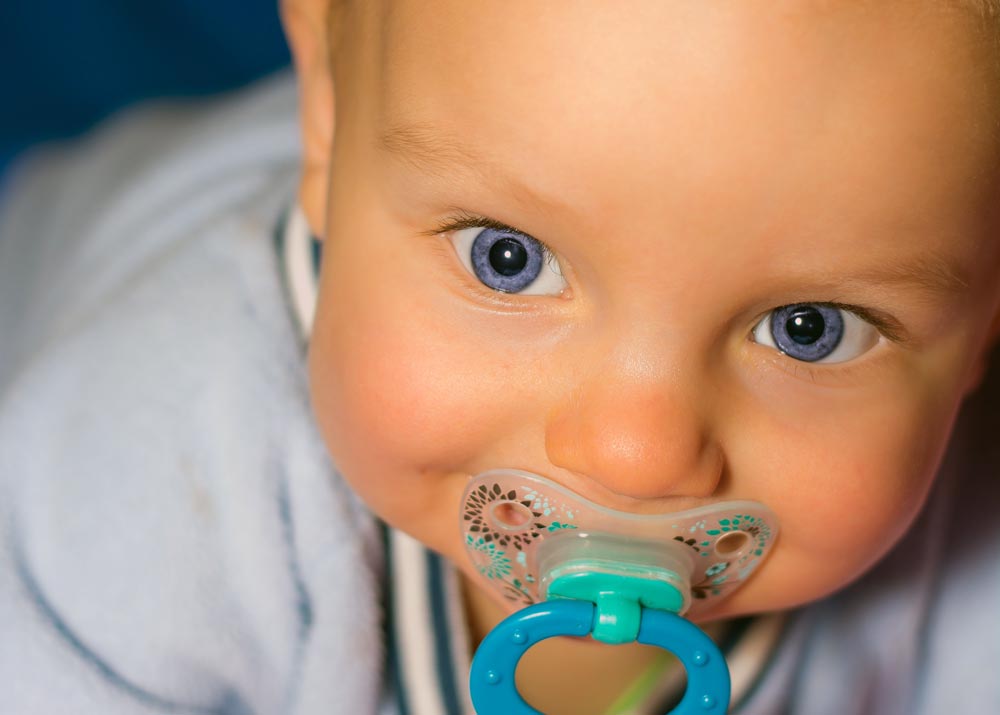Thumb Sucking & Pacifier Use; When To Stop, What Helps

Infants and young children may suck on their thumb, fingers, or a pacifier; it makes them feel secure and may satisfy them if they are crying. It also may help them relax and help them fall asleep. I had four children, so I know how important that is!
The thumb or finger are nice for the child, and parent, because they are readily available; you don’t have to find the pacifier, or clean a dropped one. Between the two, thumb/fingers versus pacifier, the pacifier is an easier habit to break, because you can just remove the item. And obviously it is harder to stop a habit that is right there for them, like their thumb.
If your child continues this habit too long, it may cause problems with tooth alignment, growth of the front part of their upper jaw, or the roof of the mouth. Most children gradually lose interest in sucking their thumb between the ages of 2 to 4 years old. If by the age of 4 your child is still sucking frequently, you should begin to discourage the habit.
Things to help your child:
- Don’t scold or demean your child when thumb sucking. Instead offer praise when they don’t.
- Children often suck their thumb when they feel insecure or stress. Recognize this andoffer comfort or reduce anxiety when possible.
- Reward your child when they avoid sucking, especially when a situation is difficult and they are not doing the habit.
- If these approaches do not work, remind the child by bandaging the thumb or putting a sock over the hand at night.
If thumb sucking persist and the permanent teeth begin to come in, then it may require a referral to a pediatric dentist to place an appliance in the child’s mouth that prevents the suction and it loses its appeal.
The child or infant may gain comfort from sucking their thumb, and it can be a difficult habit for them to give up, but the consequences to their teeth and jaw can’t be ignored. Like all good things, it eventually must come to an end.
